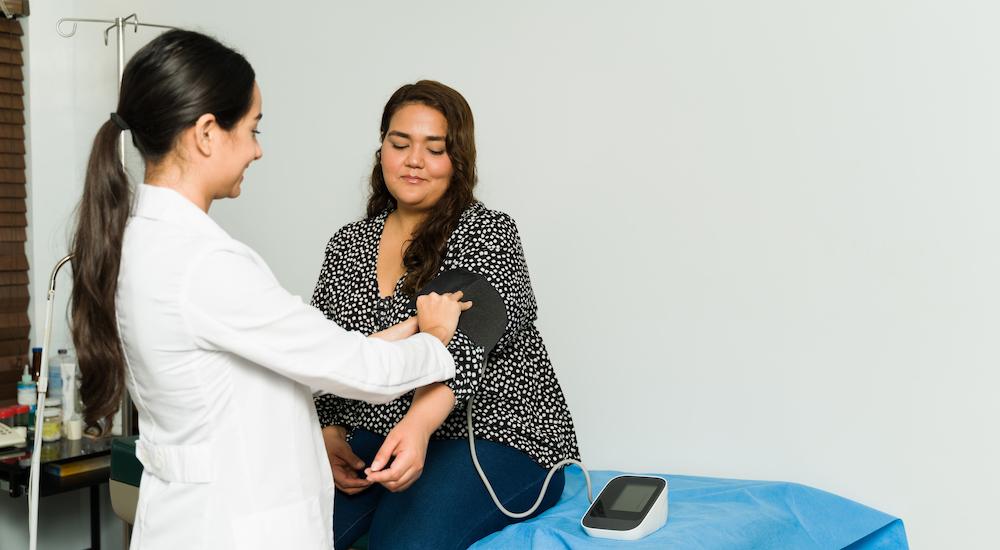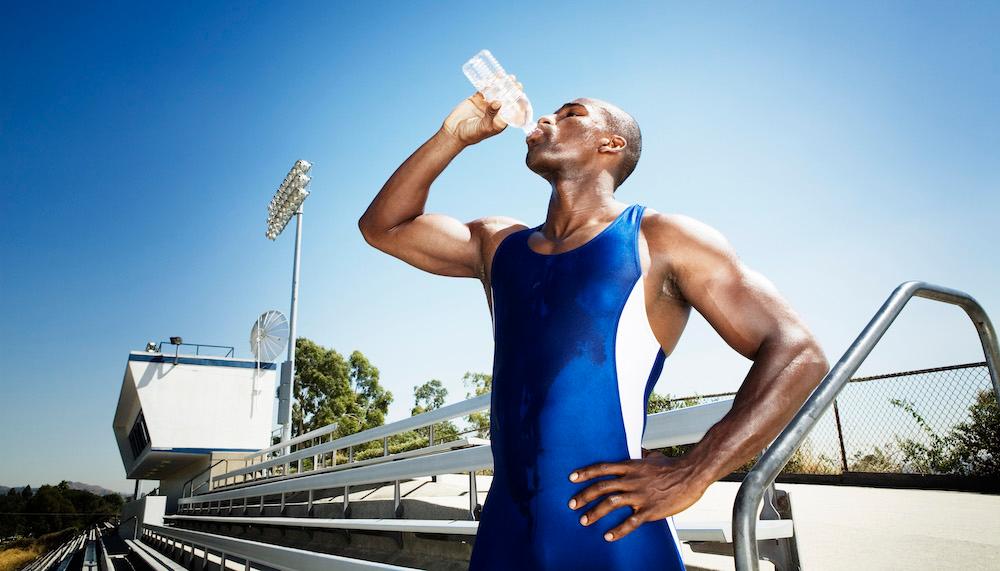Drinking Water Is a Major Part of Your Health — Particularly For Blood Pressure
Published Jan. 17 2023, 10:34 a.m. ET

There are so many things that affect our health, and our water intake is a major factor. So many of us have been told countless times over the years to drink plenty of H2O, and to stay hydrated. It's good for our skin, our body temperature, and our health overall. But what about our blood pressure?
Because drinking water is such a huge part of our health, does hydration affect blood pressure? Unsurprisingly, there are a lot of changes that can happen to your body depending on how much water you take in.
Does hydration affect blood pressure?
Hydration could, in fact, be a major part of controlling your blood pressure.
According to Healthline, there is some evidence connecting hydration to blood pressure. Although the research into this is "limited," the article states that being dehydrated can trigger low blood pressure. This is because the lack of water causes a decrease in the amount of blood that flows through your veins, aka your blood volume.

Notably, having a healthy blood volume is essential because without it your blood won't reach all areas of your body. WebMD says that this means your body won't fully get all the nutrients and oxygen it needs to be as healthy as possible. And when your blood pressure is low, your body isn't able to circulate your blood effectively.
If you are really dehydrated, your blood pressure can drop because the lack of water also lowers your blood volume.
On the other hand, Healthline also states that being dehydrated can also cause your blood pressure to be higher because of a hormone called vasopressin. According to the National Library of Medicine, it is responsible for managing not only the body's blood pressure, but also the amount of salt in the body, kidney function, and more.

What are the benefits of staying hydrated?
In addition to controlling your blood pressure, there are all kinds of benefits that come from drinking water regularly. According to the Centers of Disease Control and Prevention, drinking water prevents your body from overheating. Being too hot can have a number of negative impacts on your health.
Staying hydrated also keeps your joints protected, it filters out waste from your urine, protects your spinal cord, and more.

Being dehydrated can take a nasty toll on your body. Aside from making you not feel great, dehydration can create liver and heart problems, trigger seizures, and even hypovolemic shock, according to the Mayo Clinic. Hypovolemic shock is when your blood volume is so low it causes a drop in your blood pressure and the oxygen in your body overall. And though it may seem like drinking water is difficult, there are ways to make it easier.
For one, you can carry a water bottle with you during the day. It can help remind you to refill it and have water with you throughout the day. Also, freeze water bottles overnight so you have a nice, cold drink when you wake up, especially when it's hot. If water really isn't your vibe, you can also try seltzer water or you can add fruit slices to your bottle, to make some tasty flavored water.